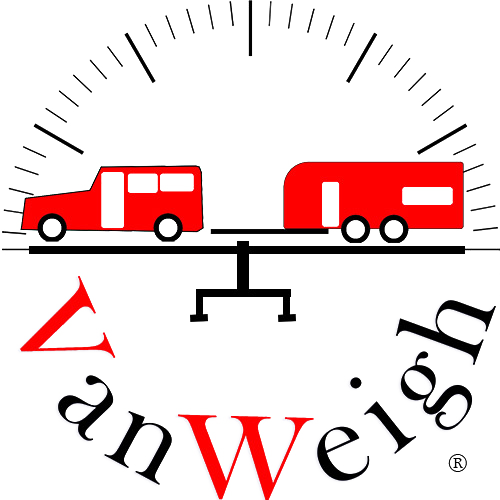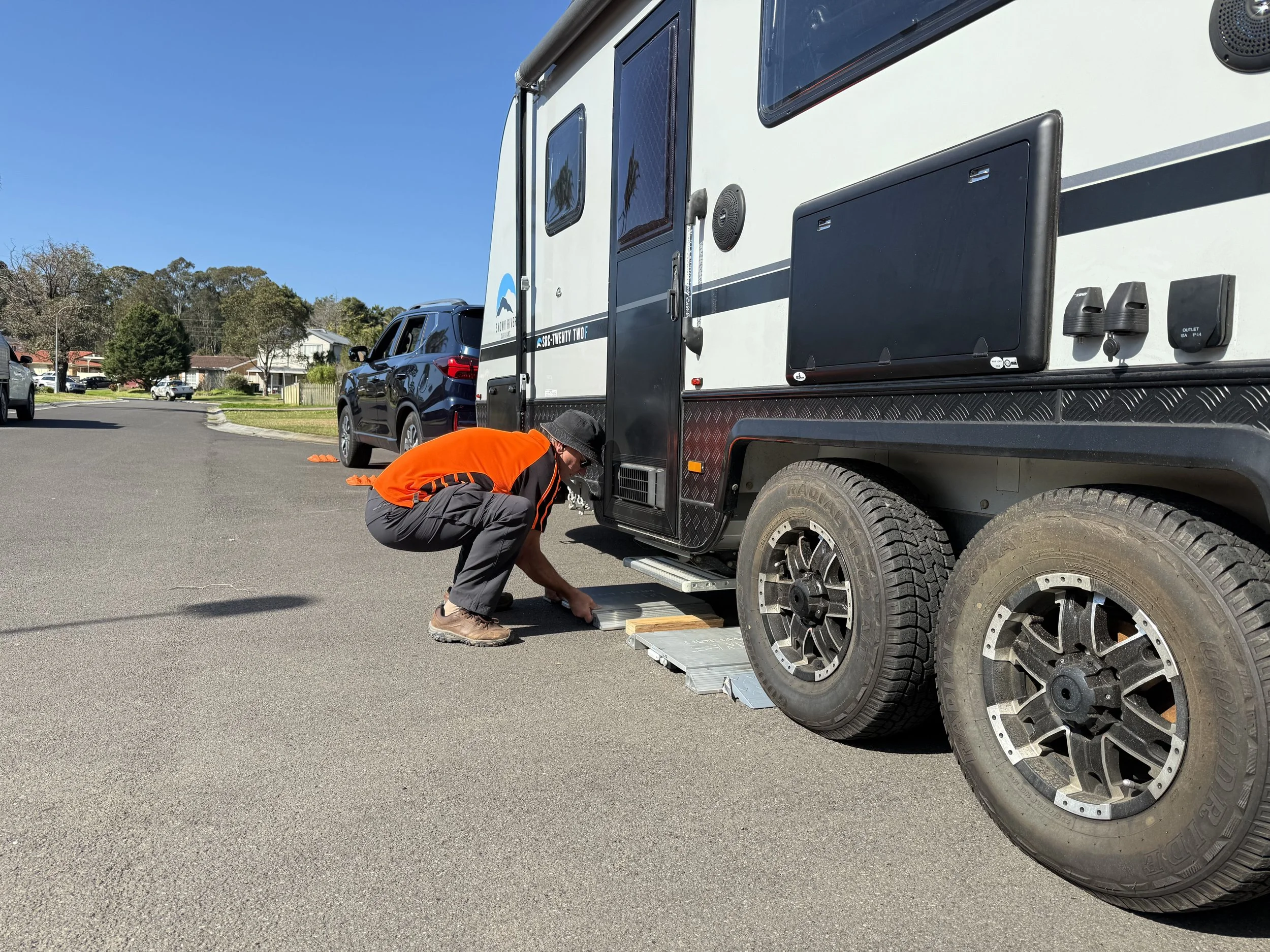Case Study: Client Discovers Major Errors in Public Weighbridge Results
Background
A client from the Sydney region reached out to Van Weigh Sydney South after weighing his car and caravan combination at a public weighbridge. He wanted to confirm whether his setup was truly safe and compliant before setting off on a long trip.
He provided his weighbridge figures, and we produced a detailed report based on those numbers.
Initial Findings
Our report, using the weighbridge data, showed several concerning overloads:
Car Front Axle: Overloaded by 269 kg
Tow Ball Weight: Over by 10 kg
ATM: Over by 21 kg
These results indicated significant safety and compliance issues — particularly with excessive weight on the car’s front axle.
The client has since engaged our services to reweigh his caravan and towing vehicle.
Verified Mobile Weighing in Sydney
To verify the accuracy of those figures, the client brought his caravan to us for a professional mobile weighing using our calibrated Van Weigh Sydney South scales.
The difference between the public weighbridge and our equipment was striking:
GVM: 166 kg lighter
GTM: 199 kg lighter
Ball Weight: 9 kg heavier
Despite the corrected readings, the setup was still overloaded by 53 kg GVM and 19 kg on the ball, confirming the need for adjustments before travelling.
See out attached report and findings of this caravan weight check
Next Steps
The client is now completing a suspension upgrade and aims to install two electric bikes on the front of the caravan, which will further influence front-end weight.
Because we take the time to understand each client’s end goals and future plans, we were able to provide tailored advice on how these changes could affect towing balance and compliance.
We’re also helping the client achieve a compliant tow ball weight. This caravan’s design naturally adds forward bias — the axles are positioned far to the rear, and both fresh water tanks are mounted in front of them. To offset this, the client plans to remove the front water tank, reducing front load and bringing the ball weight back within legal limits.
This case also highlights a common design flaw found in some caravans — where the grey tank sits at the rear and both fresh tanks are placed too far forward, upsetting balance and weight distribution.
Key Learnings
This case underscores several important lessons for caravan owners:
Public weighbridges aren’t designed for caravans.
They’re built to handle semi-trailers up to 60 tonnes, not 3-tonne caravans, and can easily misreport lighter weights by hundreds of kilograms.Accurate caravan-specific weighing is essential.
Purpose-built, calibrated caravan scales are critical for identifying true axle and tow ball loads.Caravan design impacts towing safety.
Layout choices such as tank placement and axle position have a major effect on balance and compliance.
How Van Weigh Sydney South Ensures Accuracy
Certified and Calibrated Equipment
Our mobile scales are certified to Australian standards and regularly verified using known test weights. Calibration records are maintained and updated routinely.
Controlled, Level Setup
We always weigh on a flat, hard surface, ensuring the car and caravan are perfectly level. Each wheel is measured individually, and tow ball load is checked separately.
Cross-Checking and Verification
We routinely compare readings across multiple units and test with certified weights to maintain precision.
We Don’t Rush the Process
Unlike public weighbridges that prioritise speed and throughput, we prioritise accuracy.
We double-check every measurement, confirm any figures that look off, and ensure the setup is level before recording final results.
Accuracy always comes before speed — that’s why Van Weigh Sydney South is trusted by caravan owners across NSW.
Conclusion
This case clearly demonstrates why using specialist caravan weighing services like Van Weigh Sydney South delivers more reliable and actionable data than relying on public weighbridges.
By taking the time to weigh correctly and interpret the results, the client was able to:
Identify a 200 kg discrepancy from the weighbridge reading
Plan a suspension upgrade
Make informed adjustments to achieve a safe and compliant towing setup
Both reports were provided for transparency, with the weighbridge version adjusted (axle weights divided by two) to estimate individual wheel loads.


